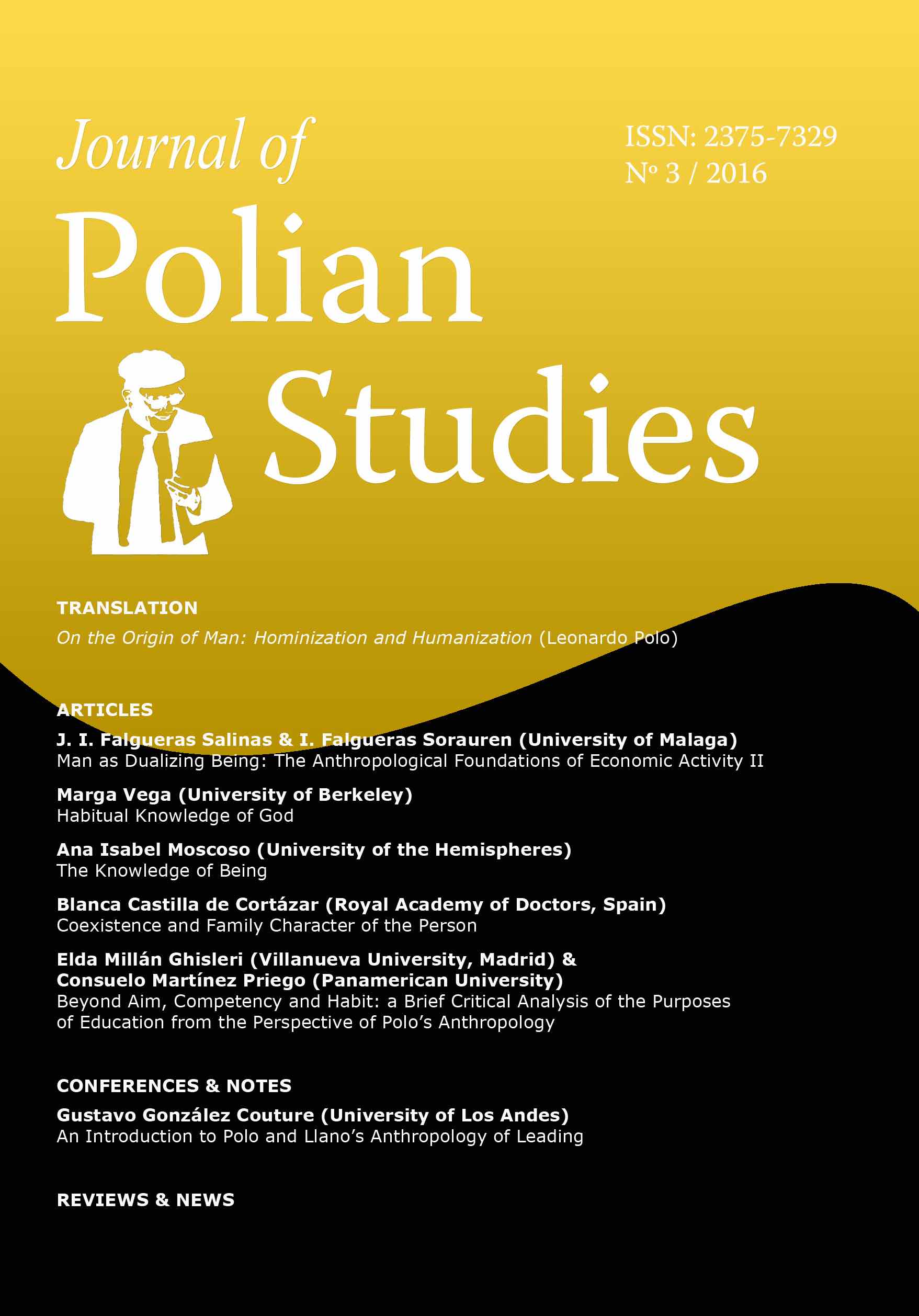On the Origin of Man: Hominization and Humanization
Keywords:
Leonardo Polo, evolution, hominization, humanization, origin of manAbstract
Translation of an article published in 1994 in the journal Medicina y persona of the School of Medicine of the the University of Navarra. First published as the last section of the chapter "Doctrina Social de la Iglesia" in the collective work Estudios sobre la encíclica "Centessimus Annus" in 1992.
In this article, Leonardo Polo considers certain conclusions regarding the origin of man. The process of hominization that leads to Homo sapiens cannot simply be equated with the process of adaptation that characterizes the evolution of other animals because it entails using tools by which man adapts his surroundings to himself and thereby reduces the need for man to adapt to his environment. Polo also distinguishes the process of hominization (which involves the somatic dimension of man) from the process of humanization (which involve the psychological-cultural dimension of man and an understanding of the person as being above the species).


